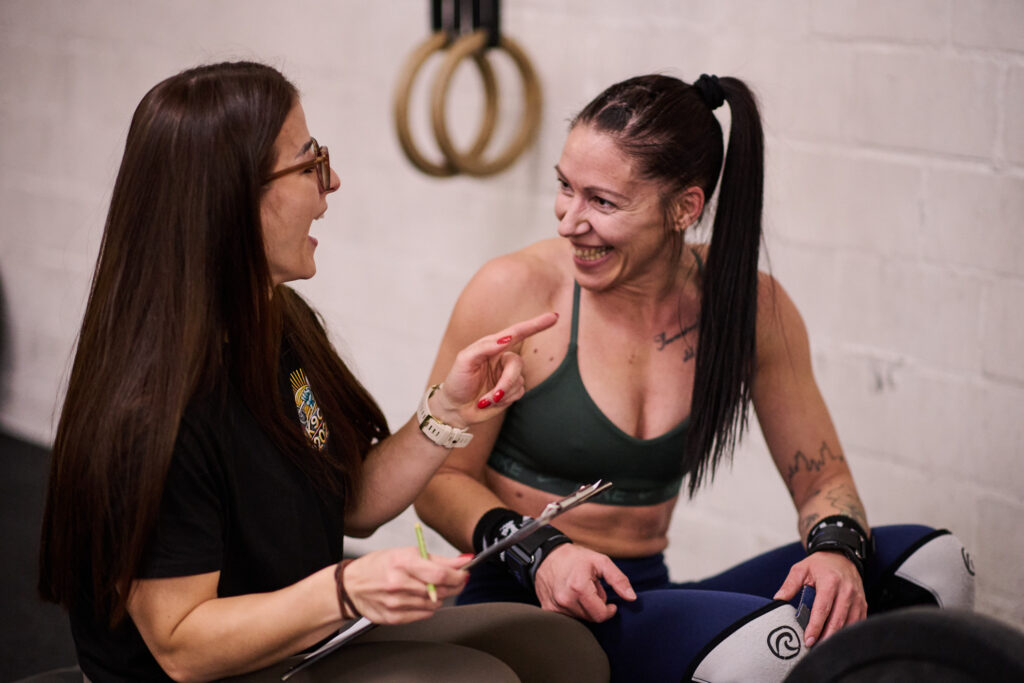
Why women need muscle is a question that goes far beyond the gym. It’s not about chasing a certain look—it’s about protecting your health, boosting your energy, and staying strong as you age. For women, building muscle is one of the most powerful ways to support a long, active, and independent life.
When you think of building muscle, you might picture male bodybuilders or fitness influencers flexing on social media. But the truth is, muscle is not just for men. In fact, women may need muscle even more than men do. Not for bigger biceps or six-pack abs (though those are great too), but for strength, longevity, confidence, resilience, and health span.
Muscle is the underrated superhero of women’s health. And if you’re over 40, it’s no longer optional. It’s essential. Here’s why.
1. Muscle protects against age-related decline
Starting in your 30s, you begin to lose muscle mass in a process called sarcopenia. This natural decline accelerates with age and becomes especially pronounced after menopause. Why? Estrogen plays a role in maintaining muscle and bone mass, and when estrogen levels drop, both start to suffer.
Losing muscle doesn’t just mean you can’t carry your groceries or move furniture. It means you’re more prone to falls, fractures, frailty, and loss of independence. For women, the risk is even higher. We already start with less muscle than men, and we experience a sharper hormonal drop. Building and maintaining muscle is the best strategy to counteract this.
2. Muscle improves bone health
Women are far more likely to develop osteoporosis than men. And here’s the kicker: muscle and bone are a team. When you strength train and build muscle, you’re also sending powerful signals to your bones to stay strong.
Weight-bearing and resistance exercises (think squats, lunges, deadlifts) are not just for aesthetics. They’re literally helping you build a more solid, resilient frame. If you want to avoid fractures in your 70s, start lifting in your 40s.
3. Muscle boosts metabolism
Muscle is metabolically active tissue. That means it burns calories even when you’re not exercising. The more muscle you have, the higher your resting metabolic rate. This is particularly important for women, who often struggle with slowing metabolism as they age.
Crash diets and excessive cardio can lead to muscle loss, which only worsens the problem. Instead, prioritizing strength training and eating enough protein helps preserve muscle, making weight management easier and healthier.
4. Muscle improves insulin sensitivity and heart health
Building muscle isn’t just about looking toned—it’s a direct path to better metabolic health. Muscle acts as a storage site for glucose and helps regulate blood sugar levels. Women with more muscle tend to have better insulin sensitivity and a lower risk of type 2 diabetes.
Strength training also supports cardiovascular health. It helps lower blood pressure, improve cholesterol profiles, and reduce inflammation. For women approaching menopause, when cardiovascular risk starts to rise, muscle becomes a powerful ally.
5. Muscle enhances mental health and confidence
The benefits of muscle are not only physical. Strength training has been linked to reduced symptoms of anxiety and depression, improved sleep, and better cognitive function. Many women report feeling more confident, powerful, and capable after they start lifting weights.
This isn’t just about how you look in the mirror. It’s about how you show up in your life. Building muscle teaches you that you can do hard things. That you can lift yourself—and others—up.
6. Muscle supports hormonal balance
Women’s hormones fluctuate monthly and shift dramatically across a lifetime. Exercise, especially strength training, can help stabilize mood, reduce PMS symptoms, and support hormonal health.
After menopause, resistance training can help mitigate some of the more challenging changes—like weight gain, hot flashes, and bone loss. Combined with adequate protein and sleep, muscle-building exercise is one of the best things you can do to support your hormones.
7. Why women need muscle more than ever after 40
Once women enter their 40s, muscle loss begins to speed up—and for many, it’s barely noticeable until it starts to impact daily life. Hormonal changes, especially the drop in estrogen during perimenopause and menopause, accelerate muscle breakdown and decrease the body’s ability to build it back.
This is one of the key reasons why women need muscle more than ever after 40: to preserve strength, prevent injury, and stay independent. Without intervention, this loss can lead to reduced mobility, higher risk of falls, and slower metabolism. But the good news? It’s never too late to start rebuilding. With consistent strength training and the right support, women can gain muscle, improve their health span, and feel stronger than they did in their 30s.
8. Muscle helps you age on your terms
Aging is inevitable. But how you age is, to a large extent, up to you. Muscle gives you options. It gives you energy to keep doing the things you love—traveling, playing with grandkids, hiking, dancing, working.
Muscle is the difference between being able to get up off the floor or needing assistance. Between feeling capable or dependent. It’s not about chasing youth. It’s about owning your age with strength and grace.
How to start building muscle
You don’t need to live in the gym to build muscle. But you do need consistency, progressive overload, and adequate recovery. Here’s how to begin:
- Lift weights 2-4 times per week. Focus on compound movements like squats, deadlifts, presses, and rows.
- Eat enough protein. Aim for around 1.6-2.2 grams of protein per kilogram of body weight daily.
- Sleep at least 7-9 hours per night to allow your body to recover and grow.
- Don’t be afraid of getting bulky. Building significant muscle mass is hard. What you’ll gain is tone, strength, and confidence.
Muscle is not masculine. It’s human. And for women, it’s non-negotiable.
So if you’re still wondering why women need muscle – the real question is, why wouldn’t we?
Start lifting. Start building. Start living stronger.





